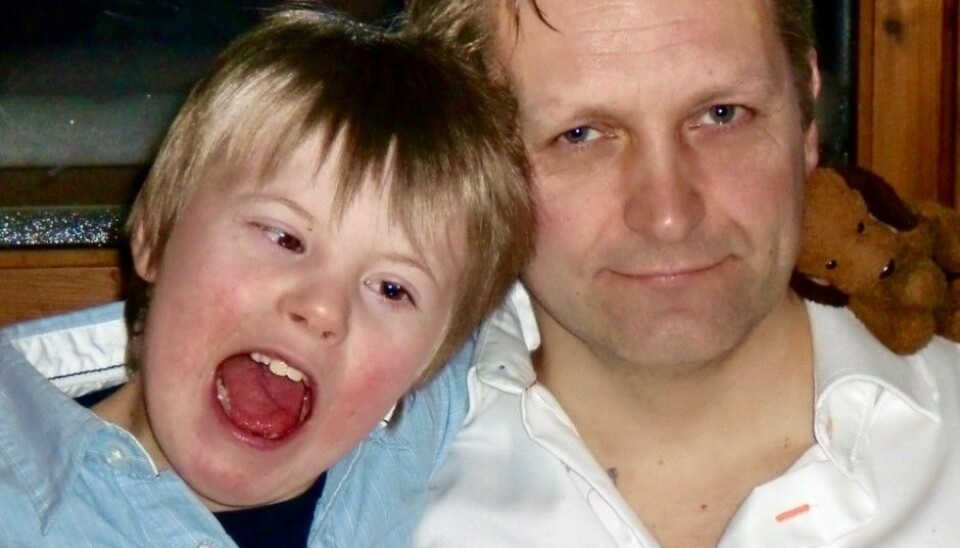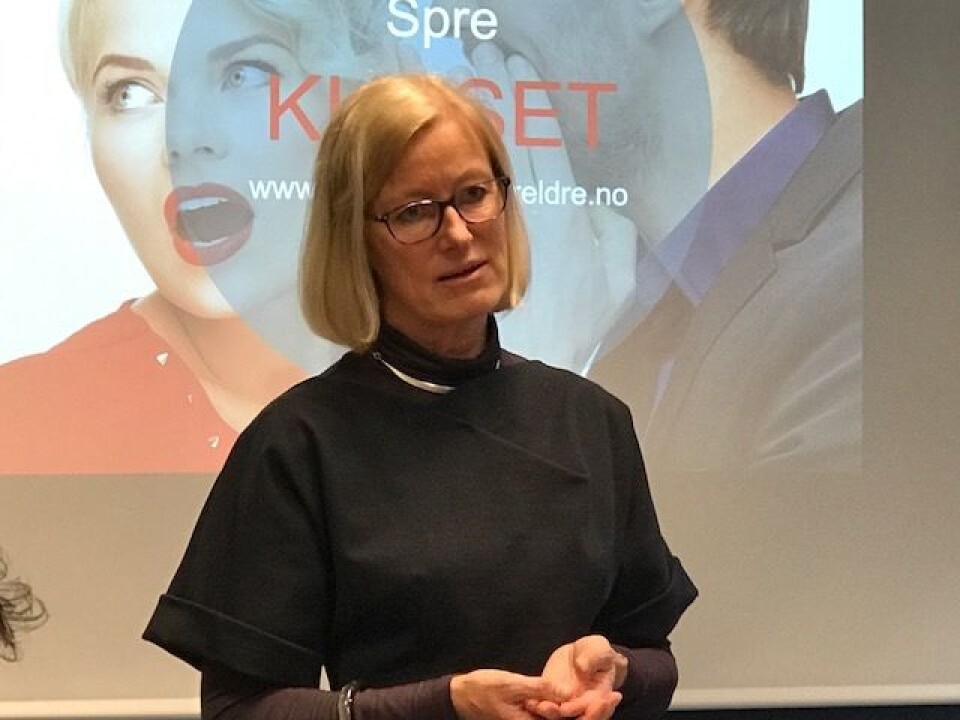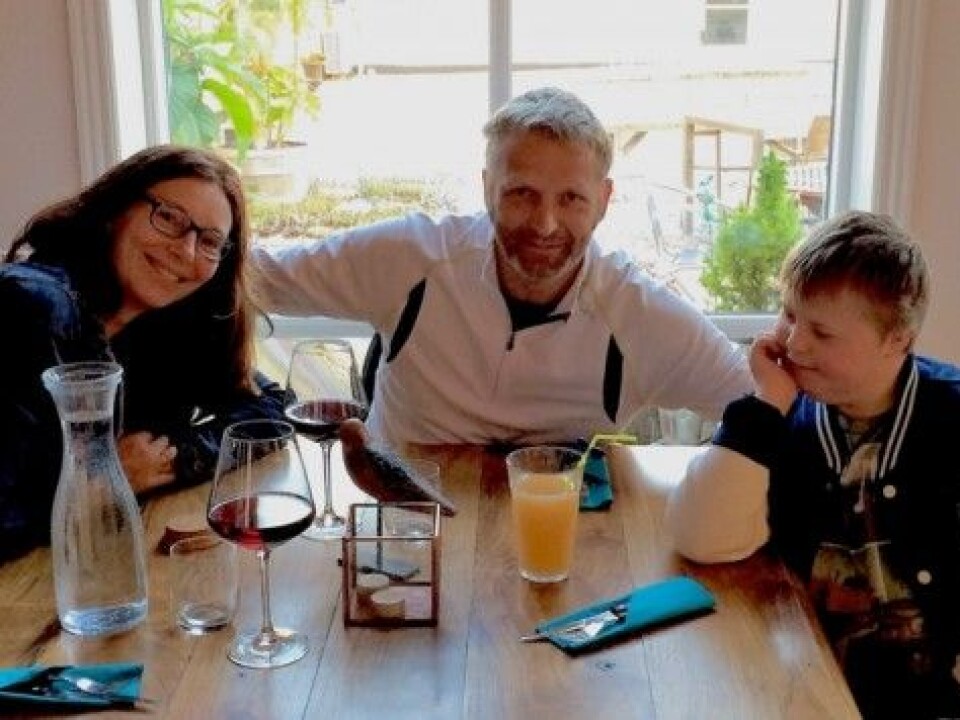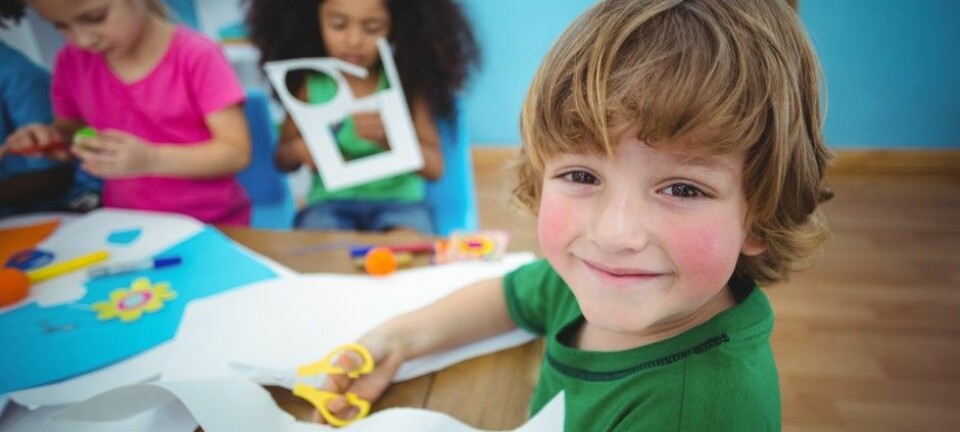
Helping the helpers: supporting parents of children with disabilities
When Erik Sand and his wife had their third child 16 years ago, their lives changed forever. Their son, Simen, was born with Down’s syndrome with serious complications. During his first year of life, Simen’s parents became so fluent in “doctor speak” at the hospital that people asked if they worked in health care.
When a child is born with serious complications, the focus is rightly on the child. But parents also need support, says Karen Therese Sulheim Haugstvedt, who works at the Centre for Health Promotion at Akershus University Hospital.
Haugstvedt has developed a research-based parental guidance programme to help parents cope with the challenges that a child with physical or mental disabilities may bring. More than 200 parents have participated in Haugstvedt’s programme, which is now available in a digital version.
Erik Sand and his wife were among the participants.
Exhausted
For the first eight weeks of Simen’s life, Erik Sand and his wife stayed in a small room at the hospital.

"I don’t remember where our two oldest children were. Friends and family took care of them. Our only focus was on Simen,” Sand said.
Most of their energy during the first few years went to caring for Simen. What they were not so good at, however, was caring for themselves. When neighbours and friends asked them how they were doing, the couple responding that things were going well.
No one saw their sadness. And nobody thought about how tired they must be. But they didn’t want to burden anyone with their own troubles.
Many difficulties to face
In 2016, ten years after Haugstvedt started her family guidance programme, she followed up with her first participants.

Most reported having had many tough years.
In addition to the physical aspects of caring for their child, parents reported struggling with the medical bureaucracy, along with concerns about their financial well-being and worries about the future for all their children.
They also had to live with the burden of their own reactions to having a child that was different and dependent on others.
Their relationships were sometimes complicated by anxiety and frustration. A number suffered from illnesses due to physical and emotional stress. Some of the parents had died.
Getting to know yourself better
She summarized the results of some participants' experiences in her doctoral dissertation from 2012. Her central question was whether it is possible for patients and relatives to strengthen their ability to live with long-term health problems.
The course she developed is designed to teach parents to take better care of themselves by helping them be more aware of both their challenges and their physical and emotional resources.
“I discovered that two things were important to these parents: to take themselves seriously by understanding: What is important to me?” she said.
The parents also had to have the courage to acknowledge their own feelings, thoughts and reactions.
In the group meetings, parents were given assignments and guidance in addition to meeting each other. They were encouraged to think about their lives and the opportunities they saw for themselves and their families.
"When they tried to make changes in their daily lives, they were surprised that they had more resources, joy and self-respect. That enabled them to take better care of themselves. And to keep going,” Haugstvedt said.
Not wrong to prioritize yourself
Erik Sand was very sceptical about joining one of Haugstvedt’s groups. But today he is glad he did it.
"If we had not participated in this course, we would have been divorced today. Guaranteed. We met like-minded in the course, and were able to talk freely without feeling like bad parents,” he said.
The course teaches parents concepts as basic as that it is not wrong to prioritize themselves a little. It encourages them reflect on their daily lives, to figure out what they benefit from and to look for opportunities to prioritize what gives them energy.
Need stronger support for social programmes
Haugstvedt’s online programme, Kompetenteforeldre.no, is a video-based self-study programme in Norwegian. She wanted to create an easily accessible offering for all parents with children with disabilities.
Her programme can be used by professionals who want to start groups, organizations that perform similar work and parents who want to create self-help groups. The researcher has tested its various combinations, with a mix of self-study and group gathering with about 35 parents.
But the experience of self-study is not the same as meeting in a group led by a professional therapist, the participants say.
Haugstvedt says it is more important than ever for society to support parents and their children with disabilities, both with social programmes and acceptance.
“The debate over these issues has become much tougher. More and more, society is sending the signal that these children are a big expense for municipal budgets,” she said. “And parents have been bullied on social media, they feel unwanted.”
-------------------------------------
Read the Norwegian version of this article at forskning.no
































